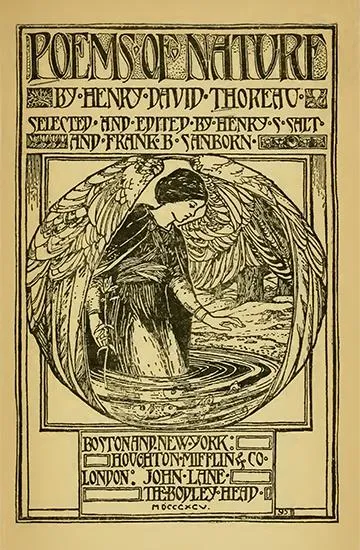
Poems of Nature
Henry David Thoreau, Henry S. Salt (Editor), Frank H. Sanborn (Editor)
- Publisher: Houghton Mifflin & Co., New York and Boston; John Lane, London
- Published: 1895
- Length: 122 pages
- Format: Hardback
Summary
The book Poems of Nature is a thoughtful compilation of fifty of Henry David Thoreau’s preserved poems, capturing the essence of his connection to nature, life, and transcendentalism. Many of these poems were published during his lifetime in works like The Week and Walden, while others were released posthumously. Notably, most of Thoreau’s poetic output occurred before the age of twenty-six, often intertwined with his prose, serving as epigrams or extensions of his ideas. While critics, including his mentor Ralph Waldo Emerson, found his technical skill lacking, they recognised Thoreau’s poetry for its profound thought, spiritual insight, and quiet nobility.
Thoreau’s poetry reflects his personal experiences, from his philosophical awakening to intimate moments of grief and love, and many poems reference his deep connection to the natural world of Concord. Though Thoreau was primarily regarded as a prose writer, his friends and contemporaries often considered him a poet in spirit, if not always in form. His unique poetic vision is evident in pieces like The Fall of the Leaf and Inspiration, which, despite their imperfections, reveal a deeper truth and reflect the poet-naturalist’s contemplative character.
Thoreau himself acknowledged that while he may not have mastered the art of verse, his life’s work, both in prose and poetry, was an embodiment of his philosophical ideals and connection to nature. His poetry, though less refined, offers insight into the mind of a man who lived as a poet, even if he did not always write as one.
Reviews
- Poems of Nature The Dial, February 16, 1896
- Poems of Nature The Times, November 15, 1895